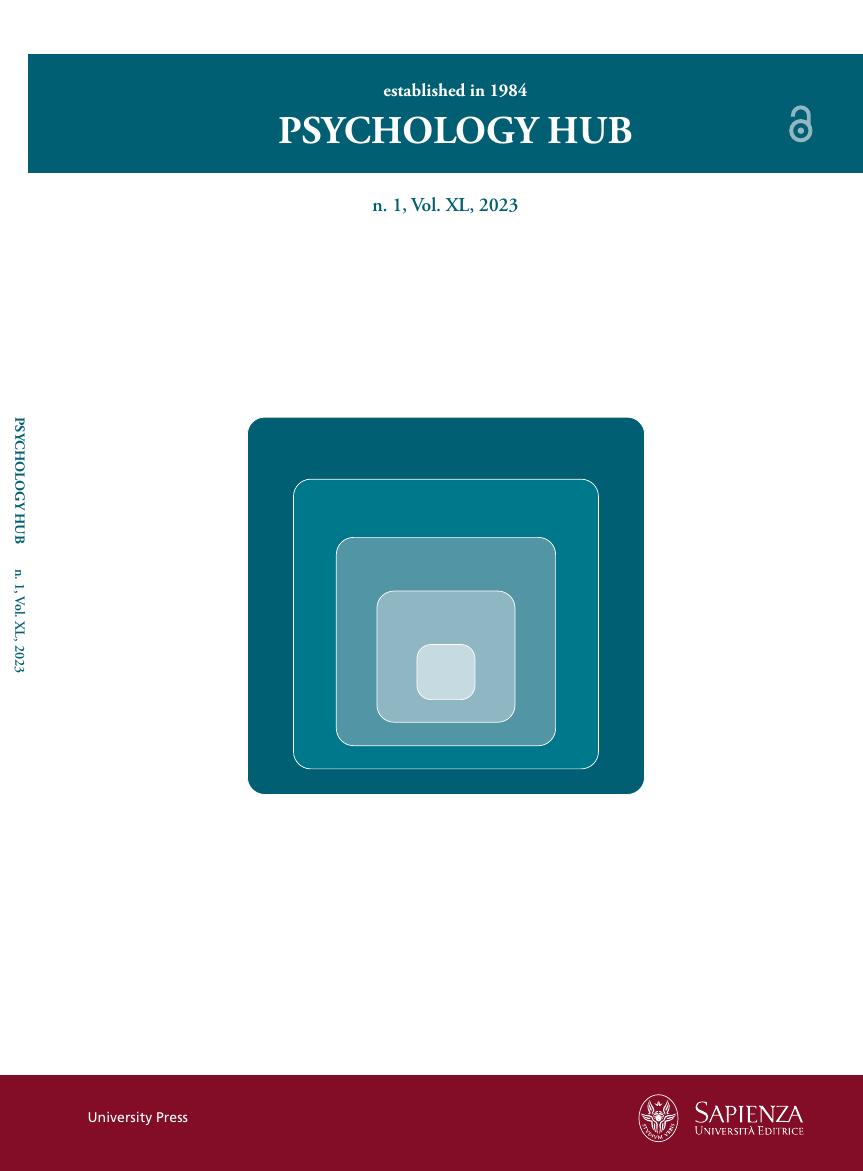Longitudinal evaluation of psychological health issues in young adults subsequent to COVID-19 pandemic
DOI:
https://doi.org/10.13133/2724-2943/17773Abstract
Background: The COVID-19 pandemic and associated restrictions negatively affected mental health, increasing the risk for mood and stress-related symptoms. We recently reported that the lockdown in Italy worsened mental health, affectetd in part by parenting and attachment. Since the pandemic continues, understanding its long-term effects on mental health is mandatory. In this study, we examined how the psychopathological responses previously reported are modulated by the easing of restrictions and how sociorelational patterns influence this response.
Methods: 42 university students were screened for psychopathological symptoms (SCL-90-R and STAI-Y), stress perception (PSS), attachment style (RQ), and parental care and overcontrol (PBI) 6 months before the confinement (Phase 1). In the same subjects, psychopathological symptoms and stress perception were retested during the lockdown (Phase 2), November 2020 (Phase 3), and July-September 2021 (Phase 4).
Results: Psychopathological symptoms and perceived stress decreased in Phase 4, compared with Phase 2. State anxiety remained elevated during the entire pandemic. In individuals with dysfunctional sociorelational patterns (insecure attachment, low care), state anxiety was stably high over time (from Phases 1 to 4), regardless of pandemic-related environmental changes, whereas those with functional sociorelational patterns (secure attachment, high/intermediate care) experienced changes in state anxiety according to their environments.
Conclusion: The improvement in psychological health demonstrates that habituation occurred, despite the pandemic still being perceived as stressful, as in Phase 1. Moreover, the flexibility to environmental changes varied according to the sociorelational patterns, wherein individuals with functional sociorelational patterns adjusted better to their environment than those with dysfunctional sociorelational patterns.
Additional Files
Published
How to Cite
Issue
Section
License
Copyright (c) 2023 Psychology Hub

This work is licensed under a Creative Commons Attribution-NonCommercial-ShareAlike 4.0 International License.





